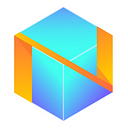Why Web 3.0 will change your life
The next generation of the internet is upon us, and it has the potential to change our lives.
Our online networks will be developed through open-source software that’s created by an open as well as an accessible community. This means that you’ll have a transparent overview of how each and every part that makes the networks tick is created, what resources are collected, and how the data is calibrated.
These networks will allow users to interact either publicly or privately, depending on their preferences. In other words, we won’t really have enormous corporations that handle all of this data, such as Google, Facebook, or Microsoft, for example, as they won’t oversee just about everything that occurs online.
Another aspect through which Web 3.0 is intended to be revolutionary is in its permissionless nature, or in other words, anyone can join without meeting any requirements from any group out there.
Web 3.0 Main Features
Tim Berners-Lee, the inventor of the World Wide Web back in 1989, coined the term Semantic Web, which is typically described to explain Web 3.0.
The idea here is that web technologies can be improved by enhancing the way through which users can create, share and connect to their content.
However, the key features of Web 3.0 are intended to be artificial intelligence and machine learning.
Through machine learning, the technology can detect patterns in content, something we see today in its infancy through specific search engines. Additionally, through artificial intelligence, computers will have the ability to process information in a similar way as we do. Through the usage of natural language processing, the web will be able to provide people with a lot more relevant and reasonable results.
Today, we have an ecosystem of interconnected applications. However, these are locked to specific brands or companies and rarely communicate between any external applications. Through Web 3.0 developments, all of the information will be connected, which allows all devices as well as services to use the same data.
Then you have decentralization and cross-platform access.
A decentralized web can be defined as this system of interconnected computers.
The main difference is that all of them are privately owned and independent.
They work together to provide private, secure, and censorship-resistant access to the internet as well as its services.
This is something we have seen today in the form of blockchain networks, where miners or nodes use their computing power to verify transactions within this network. This means that no central authority or data hosting service controls them, but a peer-to-peer (P2P) infrastructure does.
How Web 3.0 changes your life
There are several ways through which you, or any other user really, will benefit from all of these improvements that will be introduced In Web 3.0.
For one, you will have a personalized experience like never before. You see, online advertisements are intended to fit your specific needs, and within the current infrastructure, you will typically end up seeing ads for things that you do not really require. Web 3.0 is intended to be better in this aspect due to the fact that through machine learning, it can predict your patterns and push advertisements for what you need, the moment you need it, not ones that a specific company is trying to push out.
You will also receive better search engines and search results, where you will be able to communicate with a personal assistant in a way through which you would communicate to a person. What this means is that Web 3.0 is intended to bypass all of the limitations currently found on personal assistants within our smartphone devices.
Additionally, you will also get higher-quality applications, which can enrich your experience through specific features and ease of use.
Your data will be kept private, assuming you want to keep it private. For years, there have been controversies as to how companies keep our data and give it to advertisers or other companies for specific research. Through Web 3.0, all of your data can be kept to yourself, as the web will be decentralized, and no central servers can collect the data, to begin with.
Furthermore, we will see the decentralization of file storage. This has important implications for data ownership, as personal information won’t be stored in large data centers and databases which tech companies own. All of the applications and the users will from that point onward be controlled through a single company.
Where Netbox.Browser fits in
Of course, you also have the ability to earn from your daily browsing activities, such as from using the Netbox.Browser. This browser application and many other applications out there can fill their role in securing a network by validating the transactions that occur within it. In this specific case, the browser fills the role of a network validator and earns you cryptocurrency coins which you can later on use within its ecosystem. You are literally profiting from just being online.
The future of the web is intended to bring the power back to the user, where they have full control over their personal data, files, where they have personalized content delivered to them when they need it, all of which is powered by artificial intelligence and machine learning. This is how Web 3.0 will change your life.
Join us and stay tuned for more news very soon:
- Telegram: https://t.me/netboxglobal
- Discord: https://discord.gg/GCgZZPN
- Twitter: https://twitter.com/netboxglobal
- Linkedin: https://www.linkedin.com/company/netboxglobal
- Facebook: https://www.facebook.com/NetboxGlobal
- BitcoinTalk: https://bitcointalk.org/index.php?topic=5159126.0
- Medium: https://medium.com/@netboxglobal
- YouTube: https://tinyurl.com/netboxglobal
- Reddit: https://www.reddit.com/r/NetboxGlobal
- Website, WhitePaper, Team: https://netbox.global
- Explorer: https://explorer.netbox.global
- Browser with wallet: https://cdn.netbox.global/download/netbox.exe
- Wallets: https://github.com/netboxglobal
